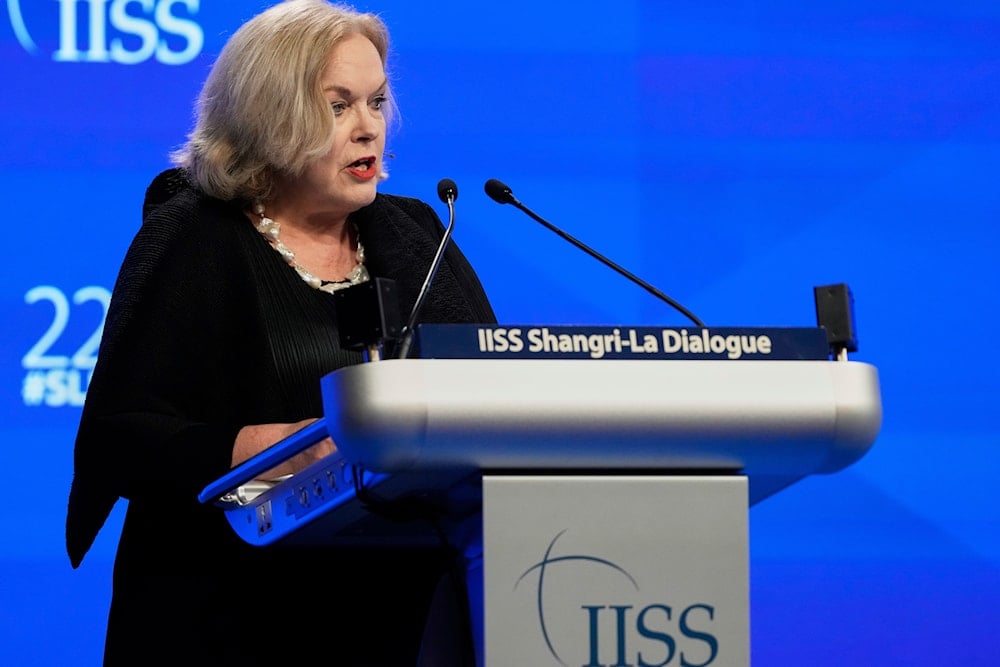New Zealand AG warns electoral reform may violate human rights law
New Zealand's proposed electoral law reforms may breach the Bill of Rights and disenfranchise over 100,000 voters, according to Attorney General Judith Collins.
-

New Zealand's then-Defense Minister Judith Collins delivers her speech during the 22nd Shangri-La Dialogue summit in Singapore, Saturday, May 31, 2025 (AP)
New Zealand’s attorney general has warned that the government’s proposed electoral law changes may breach human rights legislation and could disenfranchise more than 100,000 citizens, yet Prime Minister Christopher Luxon continued to defend the reforms.
Last week, New Zealand’s right-wing government unveiled a sweeping proposal to reform what it described as "outdated and unsustainable" electoral laws. The proposal includes shortening the voter registration deadline by closing enrolments 13 days before election day, bringing back a complete prohibition on voting for prisoners, and banning any individual or group from offering free food, drinks, or entertainment within a 100-metre radius of polling stations.
Since 1993, New Zealand's electoral rules have permitted voters to register during the two-week advance voting period, with more recent changes even allowing enrollment on election day itself, enabling individuals to cast what is known as a "special vote".
On Monday, Luxon explained to RNZ that allowing late enrollments had resulted in vote-counting delays lasting weeks, emphasizing that while the government encourages full participation in democracy, it is necessary to ensure voters are registered well before election day.
Proposal inconsistent with Bill of Rights
In a parliamentary report, Attorney General Judith Collins raised concerns that the proposed changes could conflict with the Bill of Rights, suggesting potential violations of fundamental rights, such as suffrage and freedom of expression.
Collins highlighted that in the 2023 general election, over 200,000 special votes were recorded, comprising approximately 97,000 first-time voters who enrolled during the voting period and nearly 134,000 individuals who updated their electoral district registrations while voting was underway.
“This gives some indication of the number of people who may be affected, and the farther out the registration deadline from polling day, the greater the disenfranchising impact is likely to be,” Collins said.
She noted that shifting the enrollment deadline to one to seven days before election day would create less restrictive barriers to voting rights, while also pointing out that special votes tend to disproportionately come from younger voters and communities with higher Māori, Asian, and Pasifika populations, suggesting these groups could face greater impacts from the proposed registration changes.
The attorney-general argued that the blanket prohibition on prisoner voting would unjustifiably strip voting rights from individuals who are otherwise legally entitled to participate in elections.

 3 Min Read
3 Min Read










